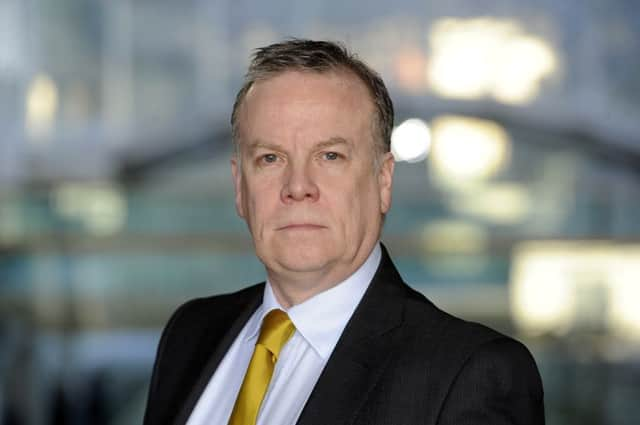Comment: Cybercrime | indy survey


These nuisance meddlers have evolved from mounting one-off daring raids, whose purpose was often merely mischief-making, into a bedrock of organised crime and terrorism.
Cybercrime is now running at £266 billion a year and the targets are multinational corporations, governments and public services. Nothing is being spared the attacks, which are now demanding ever more sophisticated means of defence.
Advertisement
Hide AdAdvertisement
Hide AdThe Bank of England has beefed up its own strategy by unveiling rigorous testing of the electronic defences of banks. It involves government intelligence, private security firms and licensed hackers working together to strengthen the barriers to attack in an environment that increasingly uses the language of war.
The most recent Information Security Breaches Survey, commissioned by the Department for Business, Innovation and Skills and undertaken by PwC, found that 81 per cent of large organisations (those having more than 250 employees) had suffered a security breach.
While this was down from 86 per cent a year ago, along with the number of raids on smaller firms (60 per cent, against 64 per cent), the scale was larger.
This slight fall was attributed to firms at last realising the need to protect their IT systems. But breaches are becoming more damaging and sophisticated, requiring boards to continue reviewing threats and vulnerabilities on a regular basis.
A problem that companies face is a shortage of people with the necessary knowledge of cyber security. If this threat is to be taken seriously, the authorities must address this as a matter of urgency.
As the world economy generally moves increasingly online, the need for such skills has never been greater – along with the need for companies to ensure cyber defence is a board responsibility.
Business vote could be crucial in indy vote
With the odds shortening on a Yes result in September, it looks as if the business voter could be pivotal in the final outcome.
Businesses, of course, cannot vote but those who run them are being drawn increasingly into the debate.
Advertisement
Hide AdAdvertisement
Hide AdAn intriguing survey by the Federation of Small Businesses reveals just how much impact the referendum is having, not least on some key decision making.
Fewer than 1 per cent of business owners said they had no intention of voting. That is encouraging for those hoping for a high turnout. It also means that every vote counts and that there is a lot of play for.
The most important figure in the survey is the 40 per cent who say they could be swayed either way by new data.
This is critical. It should alert both sides to dispensing with the yah-boo stuff and ridiculous bribes about who will be better off and instead providing hard facts on how Scotland would operate in either an independent or devolution-max environment.
That brings us back to currency, the costs of setting up a separate state, etc. In other words, even after all this time, the essentials are yet to be made clear and still provide the basis for who will win on the day.
Twitter: @TerryMurden1